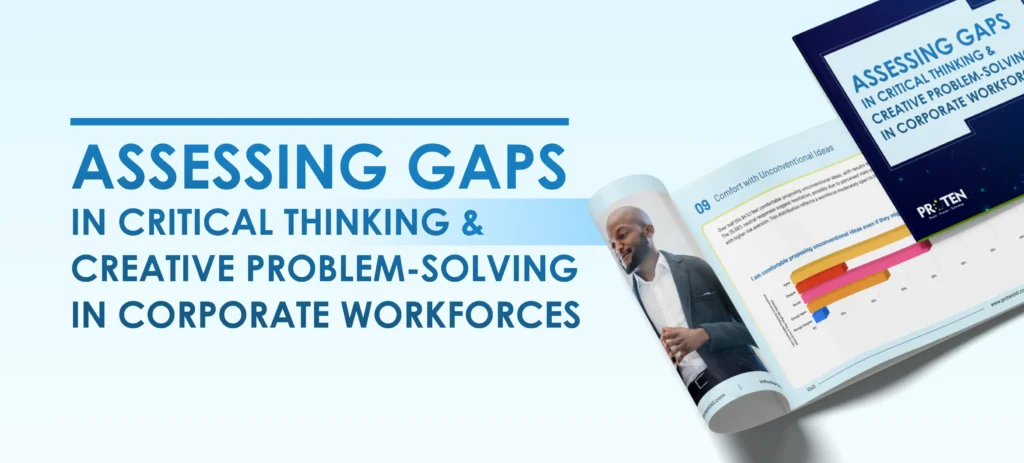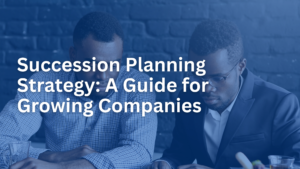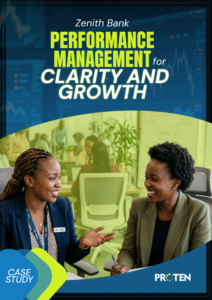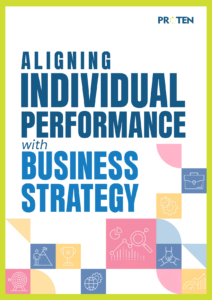Nigerian professionals are doing more with less everywhere you look, resolving issues, coming up with solutions, and persevering through difficult circumstances. However, there is still a problem with innovation and critical thinking in the workplace.
In our most recent Critical Thinking Gap Report, we surveyed to find out how more than 2000 professionals in the fields of marketing, operations, finance, and human resources approach critical thinking and problem-solving at work.
The outcomes were enlightening and encouraging. Although Nigeria’s workforce is highly motivated and idea-driven, 81% report that their roles require critical thinking or problem-solving, and 78% say they show strong intrinsic motivation to improve performance. The catch is that 71.5% of respondents also acknowledge that they need additional training or tools.
This gap between potential and support is shaping how businesses grow, innovate, and stay competitive. So, we dove into the data to highlight the five biggest insights from Nigeria’s Creativity Gap Report and what it reveals about the modern workplace, and how leaders can turn them into action.
Insight 1: Nigerian Professionals Are Highly Motivated but Under-Supported
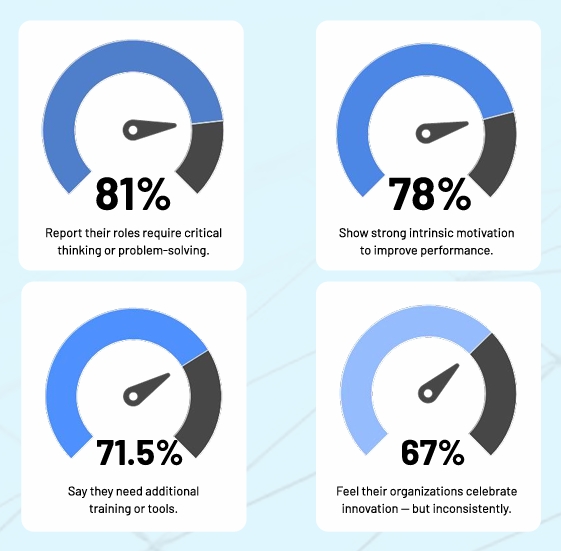
78% of professionals claim to be naturally motivated to increase productivity at work, according to the research. Instead of waiting for guidance, they seek to improve things more quickly and intelligently.
This is where the narrative shifts, though. According to the same survey, 71.5% of participants think they require further instruction or resources in order to properly address issues. To put it another way, folks have the desire but not always the means.
In many Nigerian workplaces, this stereotype is recognisable. Workers are eager to take on new challenges, but they are frequently slowed down by a lack of learning opportunities or new approaches to problem-solving. The outcome? Great ideas don’t go away.
This demonstrates the growing lack of creativity in Nigerian companies, which is caused by a lack of support rather than a lack of skill. What if organisations made greater investments in structured projects like critical thinking training or design thinking workshops? Overnight, those figures would change.
Insight 2: Innovation Is Happening, but Recognition Is Inconsistent
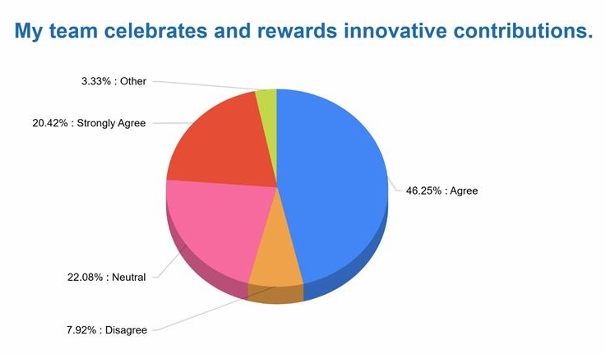
In many Nigerian offices, people are finding smart ways to do their work. About 66.67% of employees say their companies like new ideas, but not everyone feels appreciated all the time.
When one team notices creativity and another doesn’t, it can be discouraging. Employees are more likely to keep sharing ideas if their efforts are recognised. In fact, most employees whose ideas are used also say their teams reward innovation.
Showing appreciation doesn’t have to cost much it could be a small bonus, a public “thank you,” or recognising creative thinking in performance reviews can make a big difference. Companies that value and reward creativity get better ideas from their employees.
Insight 3: Culture Still Shapes Creativity More Than Capability

One thing is evident from the data: Nigerian professionals’ inability to think creatively is not the problem. It’s how much creativity is permitted that is still determined by the work culture in many organisations.
Professionals in the marketing and sales departments describe themselves as self-starters who take initiative, indicating that these teams set the standard for proactive thinking. Finance and operations, on the other hand, have a tendency to be cautious and prioritise structure and teaching over action.
This disparity stems from culture rather than talent. While departments related to risk management or compliance are supposed to “play it safe,” marketing teams are frequently encouraged to experiment and push boundaries. The issue is that the organisation as a whole suffers when creativity is restricted to specific teams.
Everyone in Nigeria, from HR to Finance, would have the freedom to question procedures, explore new ideas, and push conventions without worrying about failing in a truly creative workplace culture. Innovation spreads in this way.
This is the easiest way to put it: in the report’s recommendation, leaders should incorporate creative thinking into their organisation’s core values. Create settings where taking calculated risks is rewarded rather than penalised.
Insight 4: Openness to Diverse Perspectives Is a Strength
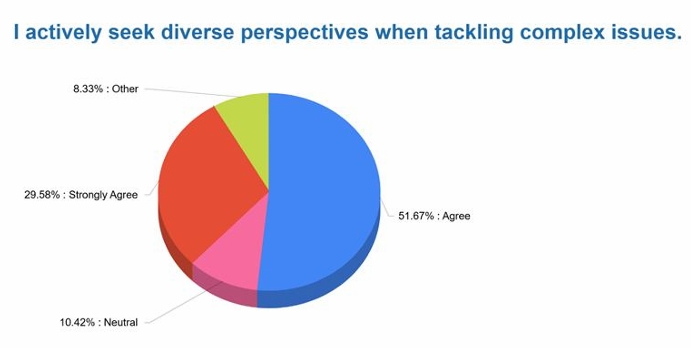
The degree to which Nigerian professionals are willing to share knowledge is among the report’s most positive findings. When it comes to problem-solving, 81% of respondents said they actively look for different viewpoints. That’s significant since working together is frequently the fastest path to better ideas.
Additionally, it demonstrates that employees are not trapped in a “my way is best” mentality. Employees are looking for feedback. They are interested in hearing the opinions of other teams. They seek discussions that enable them to view an issue from perspectives they might have overlooked.
Making sure the workplace supports it is the true challenge. Even the most receptive workers remain silent when teams are divided into silos or when communication is tense.
Here, a lot of value may be unlocked through cross-functional meetings, problem-solving sprints, and even basic shared workspaces.
Insight 5: The Creativity Gap Is About Systems, Not Talent
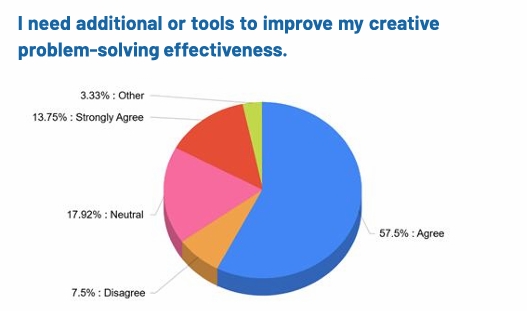
One thing is clear when you analyse all the data: there is no skill shortage in Nigeria. There is a system issue with it.
Driven and curious, employees welcome new ideas and want to work together. But even the strongest intentions begin to wane in the absence of appropriate structures. According to the survey, 71.5% of professionals still believe they lack the creative problem-solving skills necessary.
From the research, businesses are failing in three main areas:
1. Skill Development
Many employees want to think more critically, but they haven’t been exposed to frameworks that help. This is where design thinking workshops, creative problem-solving sessions, and scenario-based training can change everything.
2. Leadership and Culture
Ideas die fast in environments where only “safe” thinking is accepted. Leaders play a big role here. When managers reward experimentation or create space for healthy debate, creativity becomes part of everyday work, not just something saved for retreats.
3. Systems and Recognition
Recognition is still inconsistent, and innovation often isn’t tied to any performance metric. When companies track implemented ideas or include creativity in KPIs, they send a clear message that thinking differently matters.
What This Means for Business Leaders

The Critical Thinking Gap Report’s statistics provide a straightforward narrative. Professionals from Nigeria want to produce excellent work. They want to think more deeply, tackle more challenging issues, and offer suggestions that advance their companies. However, they can only travel as far as their immediate surroundings permit.
This is the true turning point for leadership. The potential is already present in the building if 78% of your employees are driven and 81% are actively looking for new perspectives. The institutions that enable that potential to come to light daily are what’s lacking.
This indicates several things:
- Give people access to the kind of training that sharpens how they think, not just what they do.
- Build teams where ideas aren’t dismissed because they sound unfamiliar.
- Make recognition part of how you operate so creativity doesn’t depend on “who your manager is.”
- Break down the habit of leaving innovation to only a few departments.
The companies that act on these insights will move faster, think clearly, and respond better to change. And in a market as unpredictable as ours, that’s a real edge.
To get more insights from the report, click the link to download the report.

